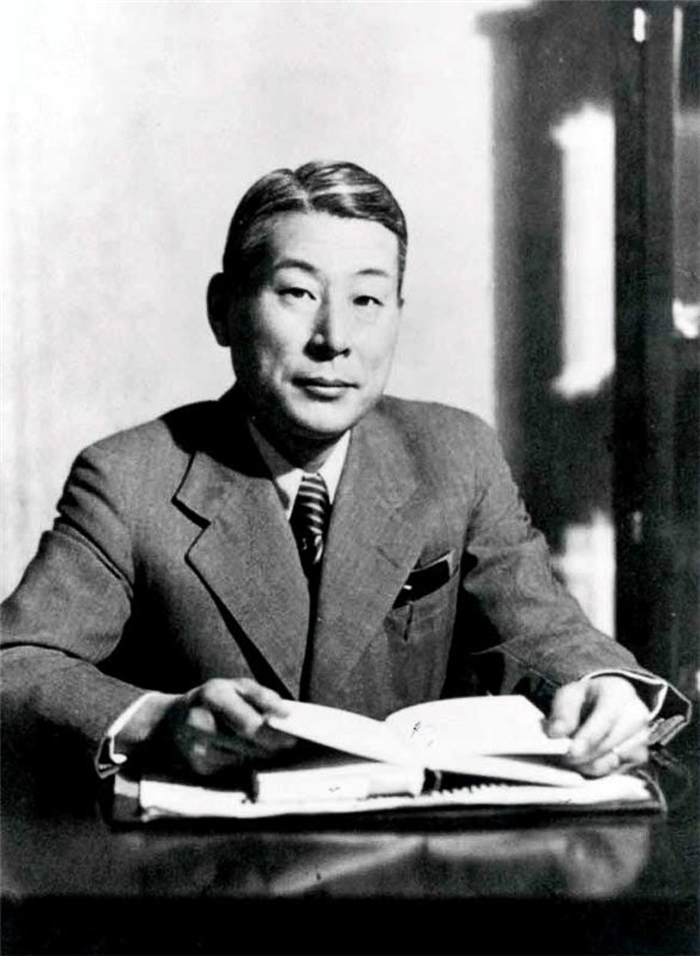Historical Heroes: Chiune Sugihara
Chiune Sugihara is the little-known Japanese World War 2 hero who saved thousands of refugees with his pen. Through his quiet defiance, he issued what became known as ‘Visas for Life’, helping an estimated 6,000 Jewish refugees escape the Holocaust. The fact he issued these visas against all his superiors’ orders became one of the most underrated life-saving decisions of the war, and is a testament to the ripple effect of one person’s conscience.
Chiune Sugihara was born on January 1, 1900, in Yaotsu, a small town in Gifu Prefecture, Japan. He was the second son in a family of five boys and one girl. His father worked for the tax bureau, and he had strong ambitions for his children to become doctors. However Chiune developed a strong interest in foreign cultures, particularly Russia. Defying his father’s wishes, he enrolled at Waseda University in Tokyo, where he studied English literature. Later, pursuing his interest in Russia, he joined the Japanese Foreign Ministry and was sent to study Russian language and culture at the Harbin Gakuin, an elite Japanese language and diplomatic training school.
In Harbin, Sugihara became fluent in Russian and deeply familiar with the politics and culture of the region. He eventually joined the Japanese Foreign Ministry and took on various diplomatic assignments. This was probably why, in the summer of 1940, Chiune Sugihara was serving as the Japanese Vice-Consul in Kaunas, the temporary capital of Lithuania.
The Plight of Refugees in Kaunas
Hitler had already invaded much of Europe, and Lithuania, briefly neutral, was quickly occupied by Soviet forces in 1940. This sudden shift trapped thousands of Jewish refugees—many of them having fled Nazi-occupied Poland—without a way to escape. They found themselves trapped between two brutal regimes: Nazi Germany and the Soviet Union.
Desperate and increasingly aware that no country seemed willing to accept them, they turned to the remaining neutral embassies in Kaunas, among them Japan’s consulate, situated in an unassuming residential house on the outskirts of town.
Sugihara’s orders from Tokyo were clear: do not issue visas without proper documentation and an established destination. But the situation on the ground was far from ordinary. Hundreds of Jewish refugees began lining up outside the Japanese consulate, pleading for transit visas that would allow them to travel through the Soviet Union to Japan and then onward to safety—many hoping to reach the Dutch Caribbean island of Curaçao, which didn’t require a visa to enter.
Disturbed at the scenes outside his house, Sugihara cabled Tokyo three times to request permission to issue these visas. Each time, the response was the same: permission denied. Japan did not want to antagonize Germany, its Axis partner.
His government wouldn’t help.
Sugihara knew the rules. But he also saw the faces of the refugees in the long straggling queue outside the embassy.
So Sugihara made a life-altering decision: he would issue the visas anyway. He knew this could cost him his career. But as he later said, “They were human beings, and they needed help. I’m not the kind of person who can ignore such a situation.”
The Power of the Pen
On the morning of July 31st 1940, Sugihara sat down at his desk and began writing visas by hand. And he did not stop. From early morning until late at night, often twenty hours a day, he wrote visas. Sugihara would write up to 300 visas a day—each one taking several minutes—while his wife Yukiko would press them with the consulate’s official seal. When he and his family were ordered to leave Kaunas by the occupying Soviet force who had taken over Kaunas, he reportedly continued writing visas in the hotel and even from the train platform as they departed.
One survivor, Leo Melamed, who later chaired the Chicago Mercantile Exchange, recalled the feeling of being handed that precious document. “We were nobody. We had no money, no passports, and every door was closed. But Sugihara looked into our eyes and saw us as human beings.”
Between July 31st and September 4th 1940 when he was forced to leave Lithuania, Sugihara issued thousands of transit visas. Estimates vary, but it is believed he issued more than 2,100 visas, many of them for families, ultimately saving over 6,000 lives.
Among the recipients of these visas was Nathan Lewin, a child at the time, who later became a prominent American lawyer. “My parents were literally saved by Sugihara’s pen,” he said. “He had no reason to help us. He had no connection to the Jewish people. And yet he gave us life.”
Refugees’ Route to Safety
The route that the refugees took after receiving Sugihara’s visas was via the Trans-Siberian Express—an epic journey from Moscow to Vladivostok, through forests, mountains, and endless tundra. For many, it was their first time seeing Asia, their future still entirely unclear. The railway line became a lifeline to those who had already escaped one horror and feared another.
Mira Ryczke Kimmelman, a survivor who later became a Holocaust speaker, remembered the train’s monotonous clatter as oddly comforting. “The sound meant we were still moving, still alive. Every mile took us further from the terror and closer to freedom. And every mile, I thought of the Japanese man who gave us that chance.”
For the Sugihara visa holders, reaching Japan meant a journey by sea in rough conditions, aboard a container ship, and arriving in Tsuruga, a port on the western coast of Honshu. From there, many settled temporarily in Kobe, and later after Pearl Harbour, were transferred to the Shanghai Ghetto, which became a rare refuge for Jews in Asia. Others who were more fortunate, with relatives who could vouch and pay for them, made their way to the United States, Canada, or South America.
Sugihara Remembered
Sugihara’s actions were not without personal consequence for him. After being expelled from Lithuania due to the Soviet occupation, Sugihara moved to Berlin with his family. There, he continued to work for the Japanese Foreign Ministry, and was involved in intelligence work, acting as a liaison with both Japanese and German authorities during the war.
Sugihara continued to serve Japan loyally, even after defying its orders in Lithuania— but was eventually dismissed from the foreign diplomatic service in 1947, possibly due to his actions during the war. For years afterwards, he lived in relative obscurity, taking on odd jobs, including selling lightbulbs and working for a trading company in Moscow. He rarely spoke about his wartime decisions. Even his own children were unaware of the full scope of what he had done until survivors began tracking him down in the 1960s and 70s.
It was not until 1985, just a year before his death, that Yad Vashem, Israel’s Holocaust memorial centre, honoured him as one of the Righteous Among the Nations—the first Japanese citizen to receive this designation. Sugihara and his wife Yukiko travelled to Jerusalem to accept the award. even though by that time he was in poor health.
Survivors and their descendants gathered to thank him. One of them said at the time, “Because of you, there are generations.” His legacy lives on in the families of the people he saved. It is estimated that over 40,000 people today are alive because of Chiune Sugihara’s decisions in the war. For many, Sugihara’s transit visa was not only a document but a lifeline; the people he saved went on to rebuild lives, families, and communities. Today, their descendants number in the tens of thousands.
In the years since, Sugihara’s reputation has slowly grown and now there is a museum in Yaotsu, his hometown in Japan. A memorial in Kaunas honours his actions. Sugihara never considered himself a hero. When asked why he did it, his reply was simple: “They were human beings. I felt it was my duty to help them.”
Last Train to Freedom tells the story of a brother and sister who are issued visas by Sugihara. Lithuanian refugees, they are given a lifesaving mission, and must survive a journey on the Trans-Siberian Express with the Nazis and the Russians in pursuit.
Deborah Swift is a bestselling writer of historical fiction and the author of Last Train to Freedom.







